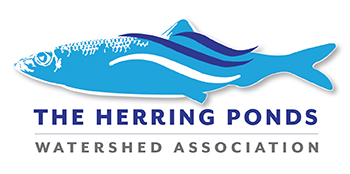Dangers of Pesticides
No matter how far you live from a pond, your property is part of a watershed
By Geri Wiliams
Have you ever wondered if the pesticides you use on your yard are harmful to your family or your environment?
Your property is part of a watershed, an area of land from which all the surface water flows from higher elevations downhill to a common body of water. No matter how far you live from a pond, your property is part of a watershed. How you care for your yard can affect the water quality.
Pesticides, which include herbicides, insecticides, fungicides and rodenticides, by definition, are toxic substances that may pose a risk to people, pets and wildlife.
The pesticides applied in your yard leach into soil and groundwater, run off into waterways and pollute the air.
Lawn chemicals can enter your home on shoes, clothes, and pets. Because pesticides break down fastest when exposed to sunlight and water, they linger longer when carried indoors, which can mean daily, repeated exposure. Pesticides are also hazardous to pets. The cancer risk for dogs rises when lawns are treated with pesticides.
Of 30 commonly used lawn pesticides, 22 are toxic to birds, 24 are toxic to fish and other aquatic life, 14 are toxic to mammals and 11 are deadly to bees. Home and garden insecticides in the neonicotinoid class have been linked to pollinator decline, with harm to bees’ reproduction, mobility, navigation, feeding, foraging, memory and learning. (From Community Action Works https://communityactionworks.org/issues/pesticides/)
Typically 5 to 10 pounds of pesticides are applied to each acre of lawn per year. Lawn and garden pesticides are deadly to non-target species and can harm beneficial insects and soil microorganisms essential to a naturally healthy lawn.
There are many alternatives to pesticide use, such as beneficial insects like ladybugs and spiders, beneficial parasites like nematodes, and certain bacteria. Grubs are the most common pests in Massachusetts. These beetle larvae feed on grass roots, killing large areas of turf in short periods of time. The most effective biological alternatives to pesticides are two beneficial nematodes – Heterorhabditis bacteriophora and Steinernerma glaseri. They can be found in many lawn care stores.
To specifically control Japanese beetle grubs (white grubs), introduce a disease that kills these pests called milky spore disease (commercially named Doom, Grub Attack or Grub Killer). This disease spreads slowly through the soil, possibly taking a season to bring the grub level down to one that the lawn can handle, but the disease will continue to kill grubs for years.
If you decide to use a pesticide, choose one that is selective for the specific pest. Many are non-selective and may kill desirable insects and plants. Always carefully follow the product instructions.

Comments
Dangers of Pesticides — No Comments
HTML tags allowed in your comment: <a href="" title=""> <abbr title=""> <acronym title=""> <b> <blockquote cite=""> <cite> <code> <del datetime=""> <em> <i> <q cite=""> <s> <strike> <strong>